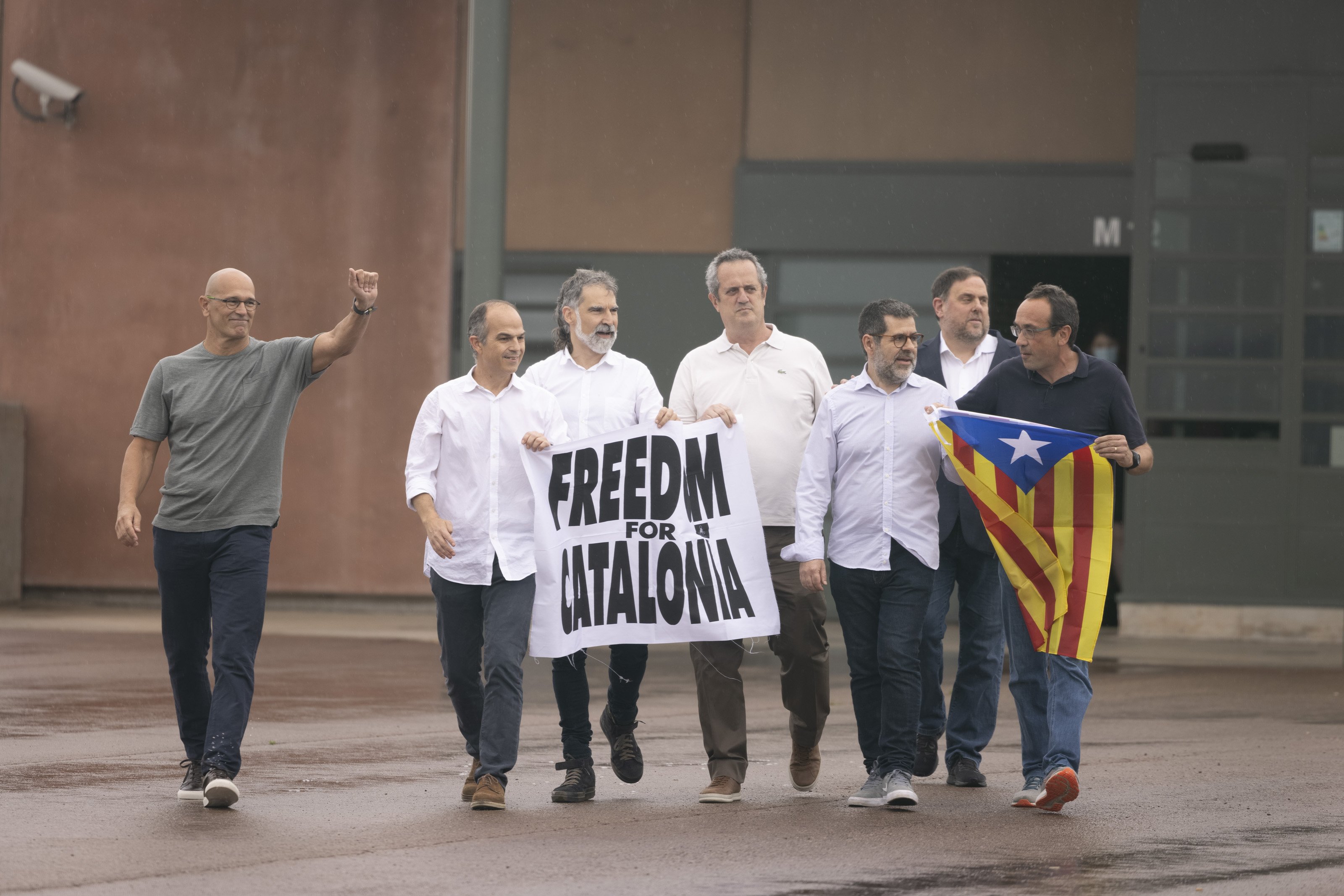The European Association of Lawyers for Democracy & World Human Rights (ELDH) has published a statement declaring its support for the Catalan amnesty law, which, it affirms, "abides by the Spanish Constitution" and is an "important step" to resolving the political conflict in Catalonia. According to this European lawyers' organization with members in 22 countries, the currently-in-process amnesty legislation makes possible the resolution of the conflict "through dialogue and democratic and parliamentary processes, rather than through the judicial system".
ELDH DECLARATION ON THE AMNESTY BILL IN THE SPANISH PARLIAMENT: ELDH applauds the presentation to the Spanish Parliament of an Amnesty Bill https://t.co/ewUCAV5ddf@SocialistLawyer @VDJinfo @ohdgenelmerkez @SocialistLawIre #Catalonia, #AmestyBill
— ELDH Law (@EldhLaw) November 30, 2023
The association has been a close observer of the Catalan independence process over the last few years, sent members to observe the Supreme Court trial of the pro-independence leaders and took a position against the sentences of that trial, which convicted nine political and civil society leaders to between 9 and 13 years in prison. At that time, the ELDH affirmed that the sentence had consisted of "politically proceedings, putting people on trial solely and exclusively for their political ideas." It was "an historical error" said that statement, which among other criticisms, noted that Spanish prime minister Pedro Sánchez had "done nothing to resolve this situation through dialogue."
By contrast, it notes that now the proposed amnesty law is "supported by the new Spanish coalition government and by an absolute majority of the Spanish Parliament". Its also outlines the background to the current amnesty bill, which was the subject of a campaign in 2021, "to create an environment in which pro independence politicians would not be under threat, and a political solution to bring an end to the deepening of the political conflict could be found."
For this group of lawyers, the 2017 Catalan referendum on independence from Spain, which took place against the will of the Spanish state, was a "non-violent act of civil disobedience", which was organized "peacefully to allow all the voices of the citizens of Catalonia to be heard". "Political problems must be resolved in a political way and not a juridical way," said the association, underlining that it will "continue to follow the developments regarding this Bill and support the resolution of political conflicts through democratic processes, rather than through the judicial system."

